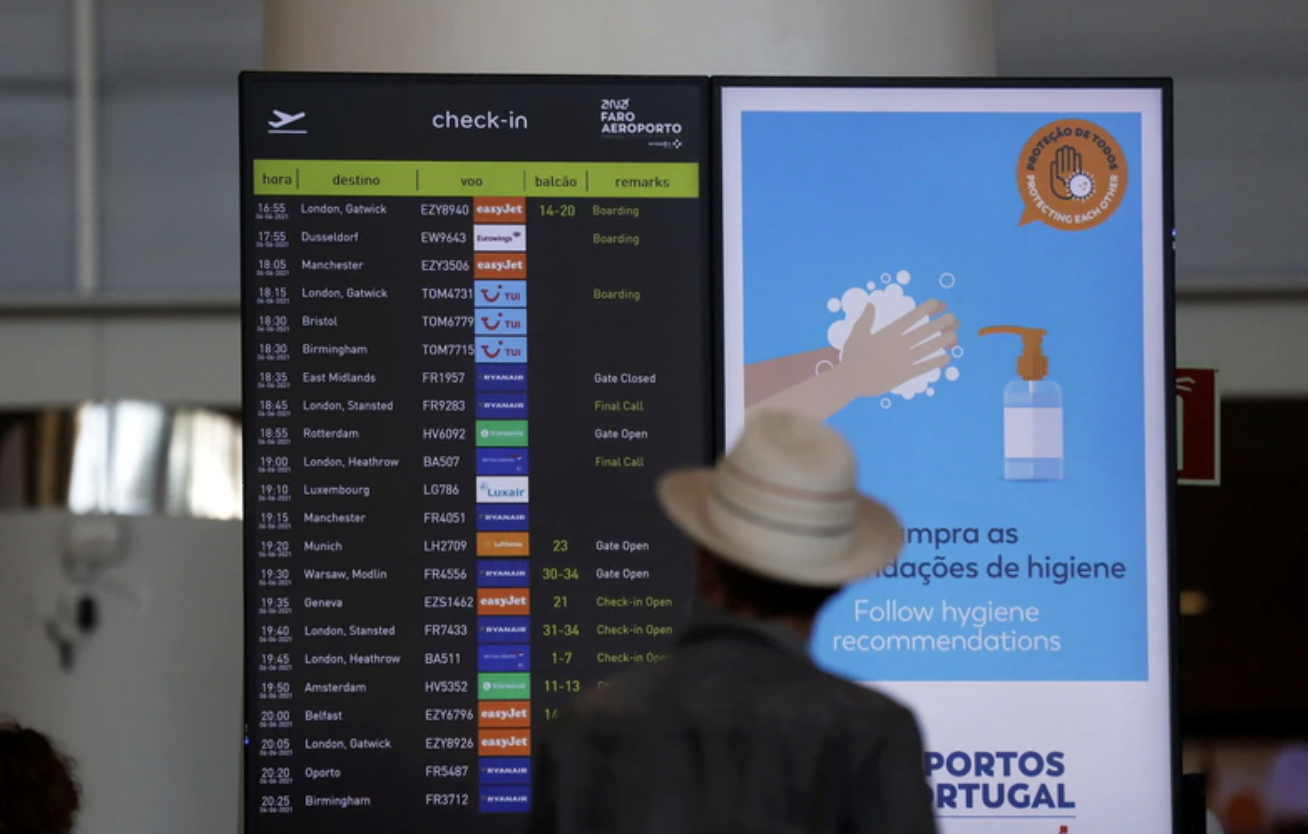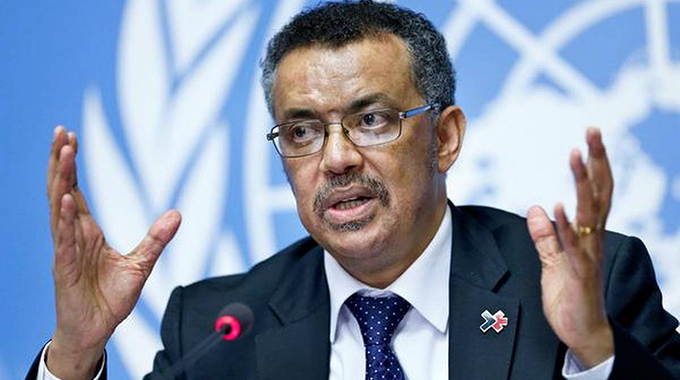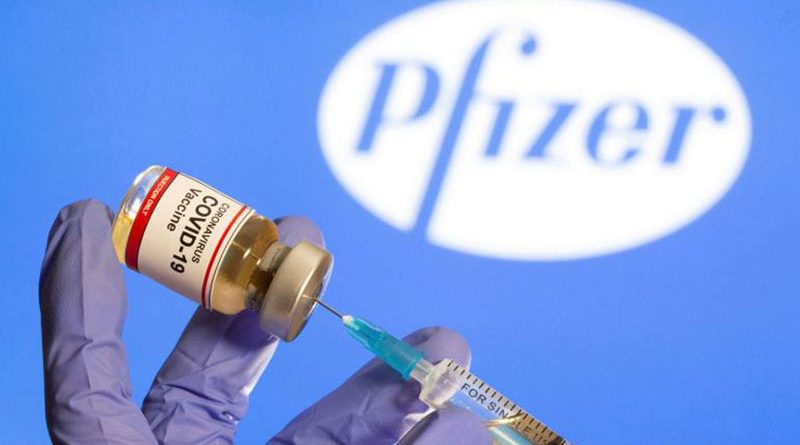European vacationers had hoped this year’s northern hemisphere summer would see unhindered movement and be largely free of travel restrictions, but countries across southern Europe are now scrambling to re-impose pandemic curbs amid alarm at rising cases of the delta variant, a highly contagious coronavirus strain first detected in India.
Spain, Portugal, Greece, Cyprus and Malta were among the first countries to start reopening earlier this year but now they are tightening entry restrictions on vacationers who have not received both jabs of the most used vaccines — Pfizer and AstraZeneca.
France and Germany are cautioning citizens against vacationing in Spain and Portugal. And Germany has added Cyprus to its list of “countries of concern” — unvaccinated Germans who do visit the island will have to self-isolate on their return home.
The piecemeal moves by national governments mirrors what unfolded last year when national governments shunned pleas from Brussels to act collectively and tested the Schengen arrangement of freedom of movement.
Abruptly announced restrictions are also adding to the woes to the continent’s airline, tourist and hospitality industries. They had been harboring hopes of a strong business rebound the next couple of months, enough to start repairing the severe economic damage the pandemic has inflicted on them.
They fear a patchwork of constantly changing restrictions, dampening demand, spelling doom for many tour operators and hotels that have managed to hang on and stay in business. But the national governments’ re-imposing entry rules are unrepentant about the tightening not long after deciding to relax measures and encourage travel.
"We all want to go on holidays but health protection is fundamental,” French foreign minister Jean-Yves Le Drian told a news conference in Madrid Friday.
French officials, like their counterparts in neighboring countries, fear a delta wave even though coronavirus numbers currently across much of the continent are low, dreading a massive jump in numbers much as Britain has experienced the past few weeks.
Rising infection rates
“This variant is dangerous and quick and wherever it is present, it can ruin the summer,” Gabriel Attal, a French government spokesman, told reporters Friday. Infections in Paris have almost doubled in a week.
The European Center for Disease Prevention and Control has issued a string of warnings, saying the Delta variant is 60% more transmissible than other variants.
“Based on available scientific evidence, the Delta variant is more transmissible than other circulating variants, and we estimate that by the end of August, it will represent 90% of all SARS-CoV-2 viruses circulating in the European Union,” ECDC’s Director Andrea Ammon said in a statement recently.
The fear is that the delta variant could quickly spread among the unvaccinated. According to ECDC around 40% of adult populations in EU countries have not been fully immunized. According to national health authorities, the delta variant already accounts for more than half of new cases in Germany, the Netherlands and Belgium.
Italian health authorities have reported a slight increase in new confirmed cases. Italy’s health ministry reckons the delta variant accounts for around a third of the new cases. “After 15 consecutive weeks of descent, there is an increase of 5% in new cases compared to the previous week,” according to Dr. Nino Cartabellotta of the Fondazione GIMBE, an independent medical think tank.
Writing in a monitoring report issued Friday, Cartabellotta stressed, though, that the amount of testing being conducted is “too low,” leading, he suspects, to an “underestimation of new cases”. The health ministry reported 1,390 new coronavirus cases Friday.
Brussels and the ECDC are urging national governments to spend up their vaccination programs.
On Saturday, European Commission President Ursula von der Leyen said the EU had delivered enough coronavirus vaccines to cover 70% of the bloc’s adult population. But she said that with Delta now accounting for over 40% of new cases in France, 70% in Portugal, and more than 30% in Spain, there is no room for complacency.
“COVID-19 is not yet defeated. But we are prepared to continue supplying vaccines,” Von der Leyen said in a video statement.
Last week, Lithuania announced the reintroduction of restrictions for arrivals from overseas. Arrivals from countries deemed “high risk,” EU or otherwise, will now have to follow stringent testing and quarantine procedures. Slovakia is also tightening entry rules, not based on the coronavirus risk of countries but on whether travelers have been vaccinated or not.
Belgium plans this week to announce new measures for arrivals from Portugal, involving testing ten-day quarantines for the unvaccinated.
Aside from Portugal, north European alarm is increasingly focused on Spain, among the first countries in Europe to reopen to tourists earlier this year. The country’s 14-day case rate has soared to 215 cases per 100,000 people. In response, authorities in the north-east region of Catalonia ordered nightclubs and discos to close again, weeks after allowing them to resume business.
Source - Read more.
The head of the World Health Organization said drugmakers should not try to provide coronavirus booster shots to wealthy nations when many poor nations have yet to receive a first dose of vaccines for much of their population.
At a press briefing in Geneva, Switzerland, on Monday, WHO chief Tedros Adhanom Ghebreyesus said the priority should be to vaccinate people who had not received any doses.
He called on drugmakers Pfizer and Moderna to "go all out to supply COVAX," referring to the U.N.-backed initiative to distribute vaccines globally, as well as to target vaccine distribution to low- and middle-income countries.
Pfizer said last week it was seeking U.S. federal authorization for a third dose of its COVID-19 vaccine to be used as a booster shot.
"The global gap in COVID-19 vaccine supply is hugely uneven and inequitable. Some countries and regions are actually ordering millions of booster doses before other countries have had supplies to vaccinate their health workers and most vulnerable," Tedros said.
He said the disparity meant "we are making conscious choices right now not to protect those in need."
WHO has said that more than 70% of all vaccines have been administered in just 10 countries.
Pfizer said it was meeting with U.S. health officials Monday to discuss its request for booster shots, which it said would boost immunity and protect people against the more contagious variants of the coronavirus.
The U.S. Centers for Disease Control and Prevention and the Federal Drug Administration said Friday they don't believe Americans need another shot yet.
Dr. Anthony Fauci, chief medical adviser to President Joe Biden, acknowledged that booster shots may be needed, but he said Sunday it was too soon for the government to recommend another shot. Roughly half of the U.S. population has been fully vaccinated.
In other developments Monday, British Prime Minister Boris Johnson confirmed that all remaining lockdown restrictions in England will be lifted in a week, despite a rise in cases blamed on the more contagious delta variant.
Johnson said during a news conference in London that people should "proceed with caution" when the restrictions are lifted.
"I cannot say this powerfully or emphatically enough — this pandemic is not over," he said.
Indonesia said Monday it set a new record of daily COVID-19 infections, with 40,427. The country is experiencing a surge of cases of the highly infectious delta variant, first identified in India.
India's Health Ministry reported Monday that the country's daily tally of new COVID-19 cases fell below 40,000 in the past 24 hours. It reported 37,154 new cases since Sunday.
In South Korea, the professional baseball league suspended its season Monday after five players from two teams tested positive for COVID-19.
The country said Monday it had recorded 1,100 new coronavirus cases on July 11, the highest ever recorded on a Sunday. The rising caseload comes as South Korea imposes new restrictions in Seoul and neighboring regions to curb the spread of infections.
Meanwhile, in Uganda, Chris Baryomunsi, a government minister, said his country had the money to buy vaccines but was having trouble purchasing them from Western countries.
"This is a challenge of access and equity," Baryomunsi, who is also an epidemiologist, told The Guardian newspaper. "We have the money, but we simply can't get the vaccine. … We have to rely on the Western world, and the Western world has focused on its population. The impression is that people there don't care about Africans."
The Johns Hopkins Coronavirus Resource Center reported nearly 187 million global COVID-19 infections early Monday and more than 4 million global deaths. The U.S. has the most cases, with 33.9 million, followed by India, with 30.9 million.
Johns Hopkins reported that nearly 3.5 billion vaccines have been administered worldwide.
Some information for this report came from Reuters and The Associated Press.
GENEVA, June 18 (Reuters) - The trend of COVID-19 cases in Africa is very concerning, a senior World Health Organization official said on Friday.
Read more - Reuters
The United States has committed to buy and donate 500 million doses of the Pfizer Covid-19 vaccine to 92 low- and lower-middle-income countries, including those in the African Union.
This comes as the World Health Organisation last week on Thursday sounded the alarm on low vaccination numbers in the continent, saying that only seven African countries are likely to meet its goal to vaccinate 10 percent of its population against the coronavirus by September.
Speaking at the sideline of the G7 summit in the United Kingdom, US President Joe Biden said that America’s donation to poor nations would “supercharge the battle against the virus and comes with no strings attached.”
"The United States is providing these half billion doses with no strings attached. Our vaccine donations do not include pressure for favours, or potential concessions. We're doing this to save lives,” he said. “We have made it clear that vaccinating the rest of the world is the only way to end the pandemic for good. We need to attack this virus globally as well.”
This comes barely a month after Washington committed to provide at least 80 million Covid-19 vaccines to Covax (the global Covid vaccine equity scheme) facility before the end of this month.
Last month, White House Press Secretary Jen Psaki said America would donate 80 million US vaccines, including the 60 million doses of AstraZeneca vaccines previously announced, and at least an additional 20 million doses of US authorised vaccines by the end of June.
“The United States will work with Covax and other partners to ensure that these vaccines are delivered in a way that is equitable and follows the science and public health data. The US will not use its vaccines to secure favours from other countries,” Ms Psaki said
The Biden administration further said that over the coming weeks, it will use its leadership working with the G7 partners, the EU, Covax and others to co-ordinate a multilateral effort focused on ending the pandemic.
“Specifically, we seek to garner concrete, deliverable commitments from other governments and private sector partners to make available more vaccines, spur production and manufacturing of vaccines and raw materials, get shots into arms around the world, and provide health security assistance to save lives, stop the spread of Covid-19, reduce the lifespan of this pandemic, and recover economically,” Ms Psaki said.
The news from Washington comes as a relief for most African countries, that were depending on the Covax facility to administer their second shots of the vaccines, but which now remain unavailable, after India blocked exports.
The US now joins France and Sweden in donating shots to Covax after vaccinating majority of their priority populations.
Last month, Unicef executive director Henrietta Fore, whose agency distributes vaccines for Covax, urged EU states and G7 nations to share their doses.
“G7 nations and ‘Team Europe’ group of European Union member states could donate around 153 million vaccine doses if they shared just 20 percent of their available supply over June, July and August. Sharing immediately available excess doses is a minimum, essential and emergency stop-gap measure, and it is needed right now,” said Ms Fore.
Going by Unicef estimates, Covax finds itself 190 million doses short of its planned target. The facility has so far delivered over 60 million dose.
Africa trails the world in Covid-19 vaccinations with WHO estimating that only two per cent of the continent’s population has received the jab.
Source - The East African











